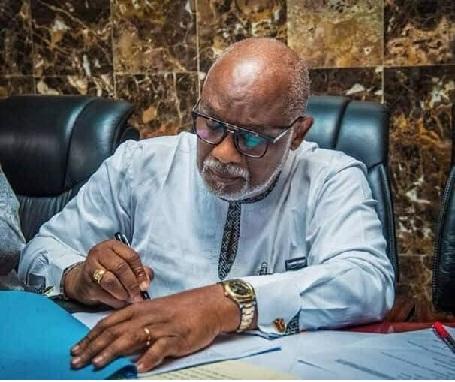Why Akeredolu won’t resign over health challenge – Commissioner
The Commissioner for Information and Orientation in Ondo State, Ms Bamidele Ademola-Olateju, has explained why Governor Rotimi Akeredolu (SAN) will not resign his position over his health challenge. The commissioner, in an interview on Arise TV on Friday morning, explained that the governor was not incapacitated, and so there was no need for him to […]

The Commissioner for Information and Orientation in Ondo State, Ms Bamidele Ademola-Olateju, has explained why Governor Rotimi Akeredolu (SAN) will not resign his position over his health challenge.
The commissioner, in an interview on Arise TV on Friday morning, explained that the governor was not incapacitated, and so there was no need for him to resign.
The health status of the governor has remained a subject of public debate, especially because he has remained in his private residence in Ibadan, Oyo State, since he returned from Germany where he travelled to for treatment. The governor returned in September, 2023 after spending about three months abroad.
Speaking on the issue, the commissioner stated that the governor still performed all his duties and that the only thing he wasn’t doing at the moment was attending social events like weddings. She explained that the governor had been attending to memos and in touch with the cabinet members.
Gunmen attack Ondo football team, shoot officials
APC, PDP bicker over defection of members in Ondo
When asked further why Akeredolu, a senior advocate of Nigeria, hasn’t considered resigning from office, the same way he, as the then President of the Nigerian Bar Association, called on the then President Umaru Yar’Adua to resign on account of his health, the commissioner insisted that the governor wasn’t incapacitated and didn’t have to resign.
She noted, “The governor is not incapacitated, I still maintain that. He would have easily done the needful. The governor still gives approvals. No issue, other than the heightened political issues.”
Speaking further on why the State Executive Council hasn’t in line with Section 189 (1)(a) of the 1999 Constitution (As amended) declared the governor as incapable, she said the governor wasn’t incapacitated and the executive council had no such plan.
“Unless the governor is incapacitated, there is no reason to evaluate his health,” she added.
The section reads, “The governor or deputy governor of a state shall cease to hold office if (a) by a resolution passed by two-thirds majority of all members of the executive council of the State, it is declared that the governor or deputy governor is incapable of discharging the functions of his office.”
When asked why he had remained in Ibadan if truly he wasn’t incapacitated, the commissioner explained, “The governor is still recuperating having gone through a very bad illness. I can’t come here and lie – I know Nigerians are watching – that the governor can run and play tennis. That is not true.
“The governor is still recuperating. His psychomotor, affective and cognitive skills are still intact, but he’s not as strong as he was in the past.”
Asked about the nature of the governor’s illness, Ademola-Olateju stated, “It’s not a very good illness, I think it’s a somatic problem (related to the body, especially as distinct from the mind). He has lost some weight, and he once told us that after 40, nobody is well.”
She blamed the heightened political tension in the state on the ambition of the deputy governor, Lucky Aiyedatiwa, while thanking the people of the state for their support for the governor and his administration.
